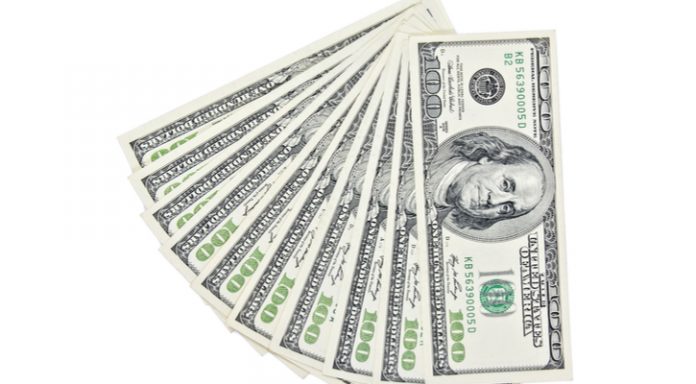The pound fell steadily lower versus the US dollar on Thursday. Brexit fears and optimism towards the future path of interest rate rises in the US sent the pound US dollar exchange to a low of US$1.2799.
| What do these figures mean? |
|---|
|
When measuring the value of a pair of currencies, one set equals 1 unit and the other shows the current equivalent. As the market moves, the amount will vary from minute to minute. For example, it could be written: 1 GBP = 1.28934 USD Here, £1 is equivalent to approximately $1.29. This specifically measures the pound’s worth against the dollar. If the US dollar amount increases in this pairing, it’s positive for the pound. Or, if you were looking at it the other way around: 1 USD = 0.77786 GBP In this example, $1 is equivalent to approximately £0.78. This measures the US dollar’s worth versus the British pound. If the sterling number gets larger, it’s good news for the dollar. |
The pound was broadly out of favour in the previous session as investors shrugged off encouraging sales data from the Confederation of British Industry (CBI) and instead focus once again on a no deal Brexit.
The CBI reported an unexpected leap in sales in August. Thanks to the hot weather UK consumers continued to hit the high street and spend money. Analysts had been expecting spending to have slowed after a strong July when the World Cup combined with the hot weather had brought shopper out in droves. Usually stronger than forecast data, leads to a boost in the currency.
| Why does strong economic data boost a country’s currency? |
|---|
| Solid economic indicators point to a strong economy. Strong economies have strong currencies because institutions look to invest in countries where growth prospects are high. These institutions require local currency to invest in the country, thus increasing demand and pushing up the money’s worth. So, when a country or region has good economic news, the value of the currency tends to rise. |
However, Brexit jitters prevented investors from getting excited about the CBI data. The market given a reality check with the release of papers outing measures under a no deal Brexit. These papers have unnerved investors who are once again focusing on the UK crashing out of the EU without a deal in place.
Today there is no high impacting UK data to be released today so Brexit will remain very much at the forefront of investors’ minds.
Dollar Higher Amid More Trade Tariffs
The dollar powered higher across the board in the previous session as investors moved past the US — Sino trade talks and looked towards Fed Chair Jerome Powell speech at Jackson’s Hole today.
Investors had been optimistic that the US — Chinese trade negotiations would provide some progress to the current trade dispute. However, the US applying further trade tariffs on $16 billion worth of Chinese imports, with China promising the same in retaliation, was an early sign that little was achieved. The dollar gained some ground as investors brought into its “safer” status, although most were already looking ahead to Fed Jerome Powell’s speech.
Mr Powell will give a speech on Monetary Policy in a Changing Economy at the Jackson Hole Conference for central bankers. Market participants will pay close attention to any signals on the future path of monetary policy.
| Why do raised interest rates boost a currency’s value? |
|---|
| Interest rates are key to understanding exchange rate movements. Those who have large sums of money to invest want the highest return on their investments. Higher interest rate environments tend to offer higher yields. So, if the interest rate or at least the interest rate expectation of a country is relatively higher compared to another, then it attracts more foreign capital investment. Large corporations and investors need local currency to invest. More local currency used then boosts the demand of that currency, pushing the value higher. |
This publication is provided for general information purposes only and is not intended to cover every aspect of the topics with which it deals. It is not intended to amount to advice on which you should rely. You must obtain professional or specialist advice before taking, or refraining from, any action on the basis of the content in this publication. The information in this publication does not constitute legal, tax or other professional advice from TransferWise Inc., Currency Live or its affiliates. Prior results do not guarantee a similar outcome. We make no representations, warranties or guarantees, whether express or implied, that the content in the publication is accurate, complete or up to date. Consult our risk warning page for more details.
This article was initially published on TransferWise.com from the same author. The content at Currency Live is the sole opinion of the authors and in no way reflects the views of TransferWise Inc.





